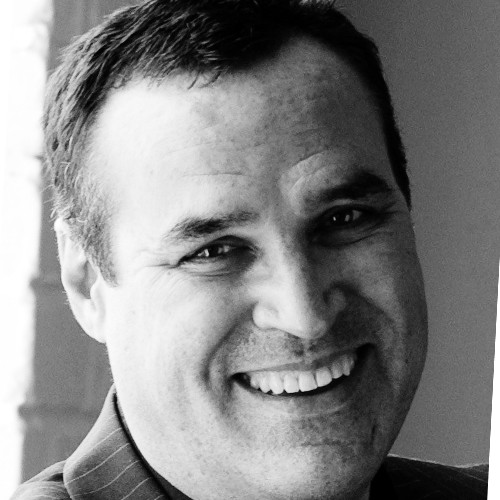Think Your Client Has Until Dec 31st to Get Portugal GV Under Old Rules? Think Again
Reasonable Doubt
With David Lesperance
A contrarian expert on contingency plans for the wealthy delivers uncomfortable truths.
As investment migration advisors, a significant part of our time is spent staying abreast of the constant changes in the various programs available to our clients. I suspect this is one of the major reasons that we all read IMI religiously.
Unfortunately, these changes often come suddenly and without warning. like the closure of the Cyprus CIP and, most recently, the update to Malaysia’s MM2H. This inevitably results in half-completed applications being abandoned, previously viable solutions disappearing, and disappointed clients.
Occasionally, however, we are given sufficient time to adjust to announced changes. Such is the current case with the new Portugal RBI “Golden Visa” rules where changes were announced well before the new effective date of Jan. 1, 2022. As we are all aware, these changes include a restriction on the location of eligible properties and an increase in the required fund investment level from €350,000 to €500,000.
First Rule of Successful Advising: Anticipate the Predictable
In order to take advantage of the current rules before the changes come into effect, full applications must be submitted prior to year-end 2021. This includes successfully registering property purchases and completing fund subscriptions. In anticipation of normal holiday season office closures, prudence would fix the last date of submission as Dec 18th rather than December 31st.
With this deadline in mind, it is obvious that advisors cannot be starting the process on behalf of clients on Dec. 17th. So, what is the latest date “drop-dead date” that advisors should be telling their clients about?
In order to determine a reasonable drop-dead date, it is necessary to understand the various steps involved, the normal completion times for each step, and your firm’s ability to project manage the various stages. Some of these stages involve third parties (such as Portuguese banks for the account opening), developers (for acceptance of purchase agreements), fund managers (for subscriptions), and registry offices (for property purchases). While developers and fund managers have a financial motivation to be efficient, banks can be more process-driven. As for the registry office, they have no particular motivation to be more efficient than usual.
On the assumption that IM advisors operating in the Portugal space know the various steps and their firm’s project management capabilities, they can then work backwards to determine which stages they can complete in parallel and which must be done sequentially.
For my own firm, we are advising clients that the effective drop-dead date for a property purchase is Sept 1st. This is because we are anticipating that the normal registry office closings will probably be slowed down by a rush of applications and could be knocked completely offline at any moment by a COVID-related lockdown. Better to plan for the worst and hope for the best.
For fund purchases where the pre-closing and registry office steps can be avoided, we are advising clients that the effective drop-dead date is October 31st.
What happens if you miss the deadline?
In the best interest of their clients, advisors should avoid trying to commence applications after their previously determined drop-dead dates. Furthermore, even when beginning a new application prior to these drop-dead dates, the client should be advised of the real possibility that delays outside of the control of the advisor might make them miss the year-end deadline. Along with this “CYA” precaution, the advisor should also clearly set out the ramifications of missing the deadline.
For property purchases in regions that will be ineligible for Golden Visa use in 2022, the advisor should make sure that there is some wording that covers the situation of the client being left holding an ineligible property should the deadline not be met. These terms could range from a guaranteed full or partial repurchase by the developer to a swap for a property in an eligible region.
Similarly, for fund purchases, the advisor should ensure that – should the deadline be missed – either the purchase price is refunded or the purchaser is given a full €350,000 credit towards the newly required €500,000 threshold.
Under either path, advisors should also clearly articulate their fee arrangements with clients, should the deadline not be met.
For those advisors who are receiving commissions from developers or fund managers, similar pre-agreements should be made. If the client does not proceed under the new requirements, the commission paid will most likely be a function of the refund arrangements for the property or fund purchase.
Liability avoidance is a matter of communication and lack of greed
As a final note, I will predict that despite already knowing the amount of runway that is left on the current Portugal program, there will still be a number of applications that will not take off in time. Some of this will be the result of applications that were started too late, while others may be the result of delays by applicants, advisors, or – most likely – unmotivated third parties.
The determination of who will “pay the piper” for this failure – both in blame and financial damages – will almost certainly depend upon the adequacy of warnings, precautions, and actions of the applicant’s advisor. So don’t ignore the warning lights in your rush to get “just one more applicant”.
David Lesperance is a global leader of international tax and immigration advisors.
A published author in the field, his personal interest in these areas of law grew from his experience working as Canadian immigration and customs officer while studying law. Since being called to the bar in 1990, he has established his expertise with major law firms, his own law firm and as a private consultant. David has successfully advised scores of high and ultra high net-worth individuals and their families, many of whom continue to seek his counsel today. In addition he has provided pro bono advice to many governments on how to improve their Citizenship by Investment, Residence by Investment or Golden Visa type programs to better meet the needs of his global clients. David is supported by a team of professionals, some of whom have worked with him since the early 1990s.




